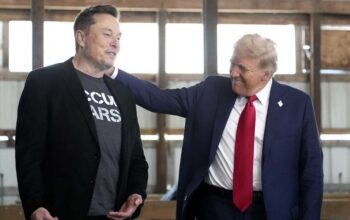
“Jungle beatz, holla at me.” It’s these words, coupled with a blaring siren, that instantly mire me into a quicksand of racial ambiguities and political correctness neuroses. Bobby Shmurda’s megahit song, “Hot N*gga,” is a soaring anthem that celebrates violence, drug dealing, and the use of the n-word. So why do I love it so much?
My concerns stem from a word so controversial, I won’t even spell it out in this article. I remember dealing with it when I read Huckleberry Finn in English class. I acknowledged that the n-word was an historical artifact in that context. When Twain wrote the word was a common linguistic element and necessary for him to capture the regional vernaculars of the era. To read Huckleberry Finn without the n-word is to ignore our country’s racial history. I even made the point of spelling it out in my homework, to prove that I acknowledged it as just another word. So why won’t I play “Hot N*gga” in my car with the windows down?
In my mind, the issue is one of appropriation. I listen to plenty of music that uses the n-word as a lyric without any qualms. But, “Hot N*gga” is a song about the n-word. It’s a song about the lives of blacks in America and why the n-word has been embraced these days. I can’t just enjoy “Hot N*gga” for its driving beat and clever lyrics; I have to interpret this song and it’s use of the n-word as a comment on race. Shmurda raps the n-word thirteen times to eliminate the hateful connotations of the word and showcase his own appropriation of a slur. In that way, “Hot N*gga” represents the evolving nature of language and race relations that I pointed when I spelled out the n-word in my English essay. So why will I never sing along when the song come on?
The truth is the n-word isn’t my word. It’s not up to me to decide whether I can use it, or even like a piece of art that uses it. I can never fully appreciate what it represents in a piece of music. Even if I think I can appreciate the new meaning of the word, I can’t control the countless people I would offend by doing so. In Mark Twain’s work, the word is an historical artifact. But, Bobby Shmurda’s n-word is an evolution of race relations, an ongoing process that I don’t want to be on the wrong side of. “Hot N*gga” is but another step on a long and enduring process of redrawing racial boundaries.
A New York Times article dating all the way back to 1993 contains the following: “Many of the blacks who defend their open use of the word acknowledge that whites still cannot publicly say ‘n***er’ without stirring up old black-white antagonisms.” A 2002 article from ABC News prompts the question, “Is the ‘N-Word’ Going Mainstream?” immediately answering the question affirmatively. But the question, “Can white people use it?” is left open-ended. I have no intention of “using” the n-word. I just want to listen to and enjoy art that is centered around it. So where does that leave me?
Any hip-hop fan, no matter their race, by now is accustomed to hearing the n-word all the time. Whether the word is used to represent an element of black culture or to just sound tough and down-to-earth is a question only the artists can answer. Of course, the word will never mean as much to me as it does to black artists and audiences. However, with the n-word used as often as it is, can each individual use still be a racial celebration? When Shmurda or A$AP Rocky or Kendrick Lamar litter their songs with the word, does it still carry the same historical weight? Even Childish Gambino, one of the most clever and lyrical rappers, tosses the word into his verses when he needs to fill space. Considering the n-word is so overused, its individual uses cannot still be moments of racial dialogue. Is the n-word now just an artistic cliché? Is “Hot N*gga” really as important as I thought?
For now, “Hot N*gga” will remain in my go-to playlist. I’ll definitely do an internal Shmoney Dance every time the song comes on. But, if you ask me to rap along, I’m just going to stay quiet.



